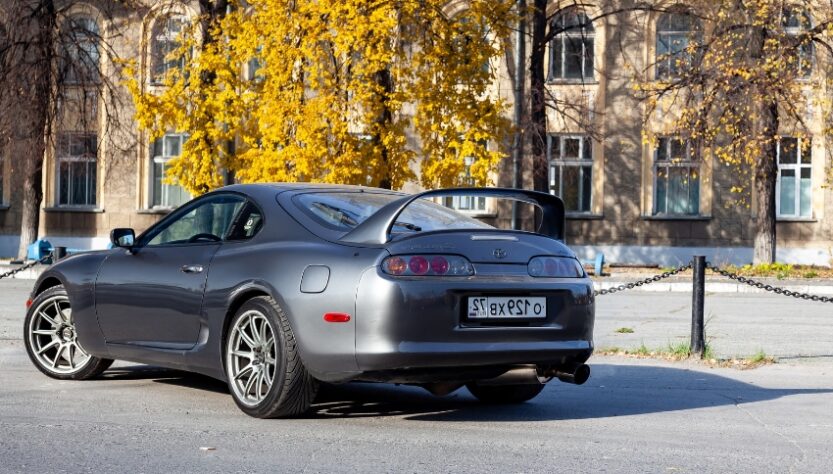In the last few years, however, Toyota has shown a particular interest in the electric vehicles (EV) segment. This segment used to have competitors like Tesla and other new entrants into the electric mobility market. In an attempt to please consumers and remain relevant as well as competitive, Toyota is increasing its electric vehicle production ambitions in the wake of various governments in the world setting tougher pollution levels. Nevertheless, the ambitious electric vehicle production plan by Toyota has hit a quite major snag. Due to this unfortunate turn of events, the outlook of the brand in the fast-paced electric vehicles’ market has, quite understandably, been put into question. Moreover, the issues that many car makers face when switching from combustion engine to electric ones, have also come into the open.
A Presentation of Electric Vehicle Expectations by Toyota
Every factor of Toyota’s electric vehicle policy is oriented toward bringing the brand as a key manufacturer of EVs all over the globe. The company has revealed that it plans to produce and sell 3.5 million electric vehicles by 2030. This’ll mean launching thirty different electric vehicle range models. This high aim is within the scope of the vision of Toyota to attain carbon neutrality by the year 2050 which indicates the shift that the automotive sectors in general are undergoing in terms of energy use.
With the help of the mass-market production of the famous Toyota Prius, a hybrid automobile, the company gained a positive image as an innovator in the eco-friendly cars market. To begin with, Toyota paid a lot of attention to hybrid technology, and eventually, the company turned to studies of hydrogen fuel cells. On the other hand, given the growing popularity of battery electric vehicles among the general public, the company has adjusted by increasing its focus and investment into electric vehicles (EVs). It has even launched electric vehicles such as the bZ4X SUV, which was the first EV that the company manufactured for sale in the mainstream market.
Barriers to the Production Process
Toyota’s inability to fully join the race can be primarily attributed to issues associated with batteries, a key component of any electric vehicle. In other word, internal battery supply chain issues have been referenced in some reports as factors that have hampered Toyota’s production of electric cars to the expected levels. Even with grand improvements having been made on batteries within the last few years, there still exists the challenge of producing quality, low-cost and mass-market usable batteries. Battery manufacturing in Toyota is contained in outside sourcing and direct manufacture. Unfortunately sourcing raw materials such as lithium, nickel and cobalt which are in rare supply proved to be expensive and resulted in delays in production.
In addition, Toyota has been working on developing its own proprietary solid-state battery technology, which the company promises would revolutionize the electric vehicle market by providing extended ranges and faster charging times in comparison to the lithium-ion batteries that are currently available. However, the technology behind solid-state batteries is still in the process of being developed, and it has been reported that Toyota is having trouble scaling this new technology up to the point where it can be produced in big quantities.
The Effect on Toyota’s Electric Vehicle Timeline
In terms of the future perspective of Toyota towards electric vehicles, this delay in the production could play serious detrimental effects. Even though the company had plans to launch its next generation electric vehicles in the next five years, the barriers that have been encountered may force extend those time frames. The auto industry is highly saturated with many manufacturers, hence the stiff competition to grab the growing market for electric cars. Some of the companies in the range of Toyota in particular, General Motors, Ford and Volkswagen, have also raised their plans for electric vehicle manufacturing and are quick to roll out new models.
If the company embarks on a long delay in executing its plans for production of electric vehicles it will be most probable that it will forfeit a certain portion of the market to these players. Many consumers today, and the young generation in particular, is gradually becoming more conscious of the environment and want to encourage policies aimed at reducing the carbon emissions and this is why electric vehicles (EVs) are appealing to them very fast. Losing its competitive edge within the automobile industry may become a reality for Toyota sometime in the near future if the company does not catch up with the production of electric cars.

As it pertains to the Challenges that Need to be Addressed
Toyota, it is reported, is working on scaling up its battery production capacity and exploring new partnerships to be able to have unrestrained access to the necessary raw materials. This is being done due to the challenges the company is currently dealing with. There is also another announcement that the corporation has made which is that it plans to invest in battery technology a sum of 13.5 billion dollars over the next ten years. A portion of the battery technology investment will be focused on the increase of the range of solid state batteries and enhance the production capabilities of the lithium ion batteries.
Also, thanks to the experience of the company in the field of lean management, processes of electric vehicles are being improved. The target of the company is to reduce some of the rise in costs that are associated with battery manufacturing as a result of cutting down wastes and improving its processes of manufacturing for that purpose. Furthermore, Toyota is looking into the various grants, subsidies, and incentives provided to car manufacturers engaged in the development of eco-friendly technologies. These funds could well assist Toyota in offsetting some expenses incurred in the innovative electric vehicle production and its corresponding expansion.
The Environment in an Industry-Wide Scope
First electrified vehicles and now a few other varieties of vehicles have been a major focus for Toyota. Toyota is not the only car manufacturer who is facing problems concerning these types of automobiles. The automobile industry at a global level has several problems including problems of the supply chain, rising prices of raw materials and the influence of outside bodies. Not only to Toyota but every other producer have been forced to operate within these challenging circumstances as a result of these changes.
Reactions and Expectations of Different Consumers
The delays that Toyota has experienced may be disheartening for customers, particularly those who are devoted to the brand and eager to acquire an electric vehicle. The Toyota brand has a significant customer base that places a high value on the company’s reputation for dependability and quality. It is possible that many of these customers have high expectations for the electric vehicle lineup that Toyota offers. In light of the fact that other automobile manufacturers are continuing to offer new models, it is possible that some customers will go elsewhere for their electric vehicle purchases if production delays continue.
Nevertheless, Toyota may be able to afford some leeway due to its brand and the loyalty of its client base. There are a lot of customers who are aware that the automotive sector as a whole is dealing with problems that have never been seen before. It is possible that some customers may feel more at ease knowing that Toyota will continue to be a reliable option for electric vehicles in the future as a result of the company’s openness regarding its attempts to address these challenges and its continuous commitment to innovation.
The Path Forward for Toyota’s Electric Vehicle Plans
In spite of the obstacles, Toyota is unwavering in its dedication to achieving its electric vehicle manufacturing goals. Reiterating its desire to continue investing in the technology and relationships necessary to reach its ambitious ambitions, the firm has stated that it intends to continue doing so. Despite the fact that the delays are disappointing, it is not completely surprising that they have occurred given the complexity of electric vehicle production and the current status of the industry.
Toyota is also looking into ways to expand its electric car options, with a particular emphasis on hybrid and hydrogen fuel cell technologies as a means of complementing its array of battery-electric vehicles. With this varied strategy, Toyota may be able to provide customers with a variety of environmentally friendly car options that cater to their individual requirements and preferences, so potentially mitigating some of the risks that are associated with delays in the manufacturing of electric vehicles.
Final Thoughts
Toyota’s foray into the electric vehicle market has been met with a number of unanticipated obstacles; yet, the business continues to maintain its concentration on its long-term objectives. Toyota is attempting to overcome the manufacturing challenges it is currently facing by making targeted investments in battery technology and maintaining a commitment to sustainability. Despite the fact that the path that lies ahead may be difficult, Toyota’s reputation for quality and innovation places it in a strong position to achieve success in the rapidly changing electric vehicle scene. In order to have a better understanding of how Toyota will respond to these difficulties and adjust to the fast evolving automotive industry, consumers and industry analysts will be paying close attention.
